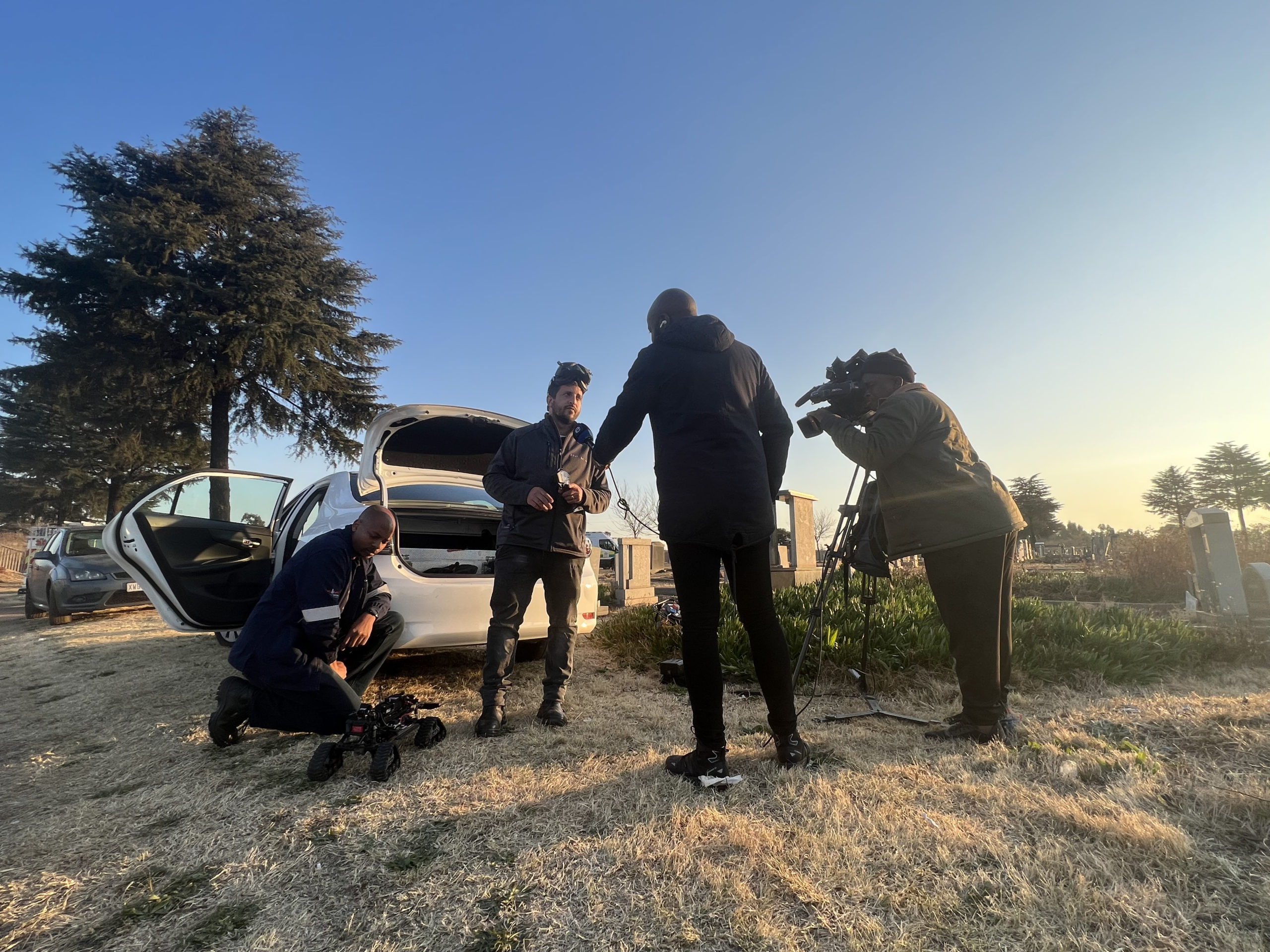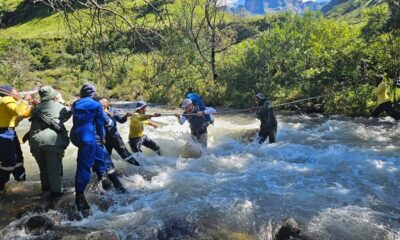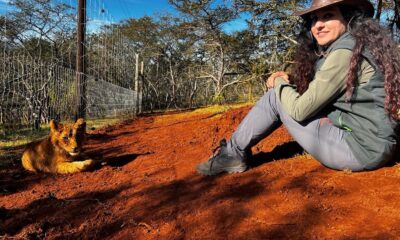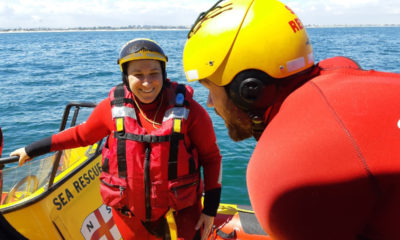
Featured Item

Engineer uses expertise in search for child
When six-year-old Khayalethu Magadla fell into a sewer manhole in Soweto on 12 June 2022, Johannesburg’s Darryl Epstein felt he had to help find the little boy. A trained civil and structural engineer, Epstein is the founder and managing director of Delta Scan. The company specialises in the digitisation and inspection of infrastructure using high-tech solutions such as drones, robots, and artificial intelligence.
“I felt it was my responsibility and duty to assist,” says Epstein. “I came across an article two days after he had fallen into the manhole, and read how they were sending divers in and trying to get through a difficult tunnel infrastructure.
“Having inspected a major underground culvert system last year that runs through Houghton and Orange Grove, I knew we could add value to the search efforts, having successfully used unmanned vehicles and drone systems to get through complex routes. We had to act fast to have the best chance of finding him alive.”
Epstein reached out to every news outlet he could find which was covering the story, “and within a few hours, we were put in touch with Robert Mulaudzi, the spokesperson for the EMS [Emergency Medical Services]. When he heard that we wanted to get involved, he called an emergency meeting with all rescue staff and appointed us in charge of inspecting the lines. We had to postpone our current projects and get all hands on deck to help with the search.”
Regarding the environment that Magadla fell into, Epstein says, “Initially, we all thought it was a stormwater line, which would have minimal water in it during the winter months. It’s common to find storm water covers missing and kerb inlets damaged, and it’s where we normally do condition audits on fairly accessible underground tunnels. We brought our ground-inspection vehicles to go into the route, but when we got to the manhole on day one, we realised this was going to be a highly complex inspection.”
They used robots with cameras to get a 360 degree view of the pipeline under and above water, searching 18 hours a day for about 10 days. This was faster and safer than sending divers into the tunnels.
“The tunnel was an active sewerage system removing waste from half of Soweto with constant, fast-flowing water and toxic gases,” says Epstein. “With a sewerage system of this size, there’s no ‘off button’, and we had to work around the heavy flow. The chance of the boy’s survival dramatically decreased, and we went back to building a remote-controlled boat system with specialised cameras to move through the tunnels while above the water.”
On the first day, “we thought there may be a chance we would find him alive”, he says. “After discovering it was a toxic sewerage system, we knew the chances of finding him alive were slim. The tunnels go more than 20 metres below ground level in some places and the oxygen supply is very low. When divers entered, they had to wear closed-circuit breathing systems and even with that, they couldn’t stay down there longer than 40 minutes. But at this stage, we didn’t know the make-up of the system and if there were any chambers or blockages along the route.”
The emotional toll on Epstein and his team was enormous. “Our day-to-day job is inspecting infrastructure and doing engineering audits. On this project, we had the family of the boy with us begging for answers on a daily basis. We had the community rioting over the state of open manholes. We were surrounded by police, fire fighters, EMS teams, government officials, and at times more than 100 emergency personnel on-site. There was a constant urgency and desperation in the air to find answers as quickly as possible.
“It was also freezing working around the sewerage system every night, but we had a job to do and stayed focused on the objective. I have three little children of my own at home around the same age as Khayalethu. Every day, I was asking myself what if this was my own child [G-d forbid]? I would want to move heaven and earth to find them, so we needed to do the same for this kid.”
Delta Scan uses unmanned drones and robots to inspect the condition of infrastructure in mines, buildings, public infrastructure, and industrial plants. “A large amount of our work is inspecting collapses and in post-disaster management,” says Epstein. “We have been extensively involved in post-flood damage assessments in Durban over the past few weeks, and we regularly inspect fire-damaged structures.
“The tools we use allow us to gain access to difficult areas without putting anyone at risk, and enable us to make quick decisions about the stability and integrity of a structure,” he says. “In this case, we adapted the tools we had to get real-time footage from inside the sewer network. The EMS teams had never been exposed to this kind of technology before, and we’ll definitely be working alongside them in the future. They have asked us to teach them how to use the tools and provide training so that they can manage disasters more effectively in the future.”
Tragically, the search for little Khayalethu was eventually called off. “It was heartbreaking,” says an emotional Epstein. “We gave it our all, and managed to cover about 13km of sewer lines all the way to the treatment works. I wouldn’t be able to sleep at night knowing we had missed something or didn’t finish the job. The search has now been handed over to Johannesburg water and police units to determine other possibilities.”
The last time the SA Jewish Report spoke to Epstein, he and his team were working on restoring buildings at the University of Cape Town after the devastating mountain fires of April 2021. Asked about how that project is going, Epstein says, “Since the UCT fires, we have had numerous meetings to discuss rehabilitation work, and our digital models have been used to plan the restoration.
“Over the past few months, we have inspected more fires than I can count,” he says. “We have been called in to do forensic audits on many of the fire-damaged houses in Houghton which have been reported on in the past few weeks [as a result of a serial arsonist on the loose] and have inspected major fire claims around the country.”
Asked if he would volunteer his services pro-bono again, Epstein says, “Absolutely. It’s not often that we have the opportunity to give back to the community. Especially in rural environments and informal settlements, there’s limited access to services and unfortunately, much of the infrastructure we take for granted in the suburbs is non-existent there.
“In this particular situation, it’s not just one manhole that was left open, there are many, many more. Every time a manhole is installed, it doesn’t take long for it to be stolen for scrap metal,” he says. “In some places, it took hours to access the tunnels because the covers and grids had to be welded closed. The city is now looking at ways to use composite materials with little scrap value.”










